The Best Alternatives to Retinol and How They Work
Written by: Radhika Sen
Updated on: 30th April 2025
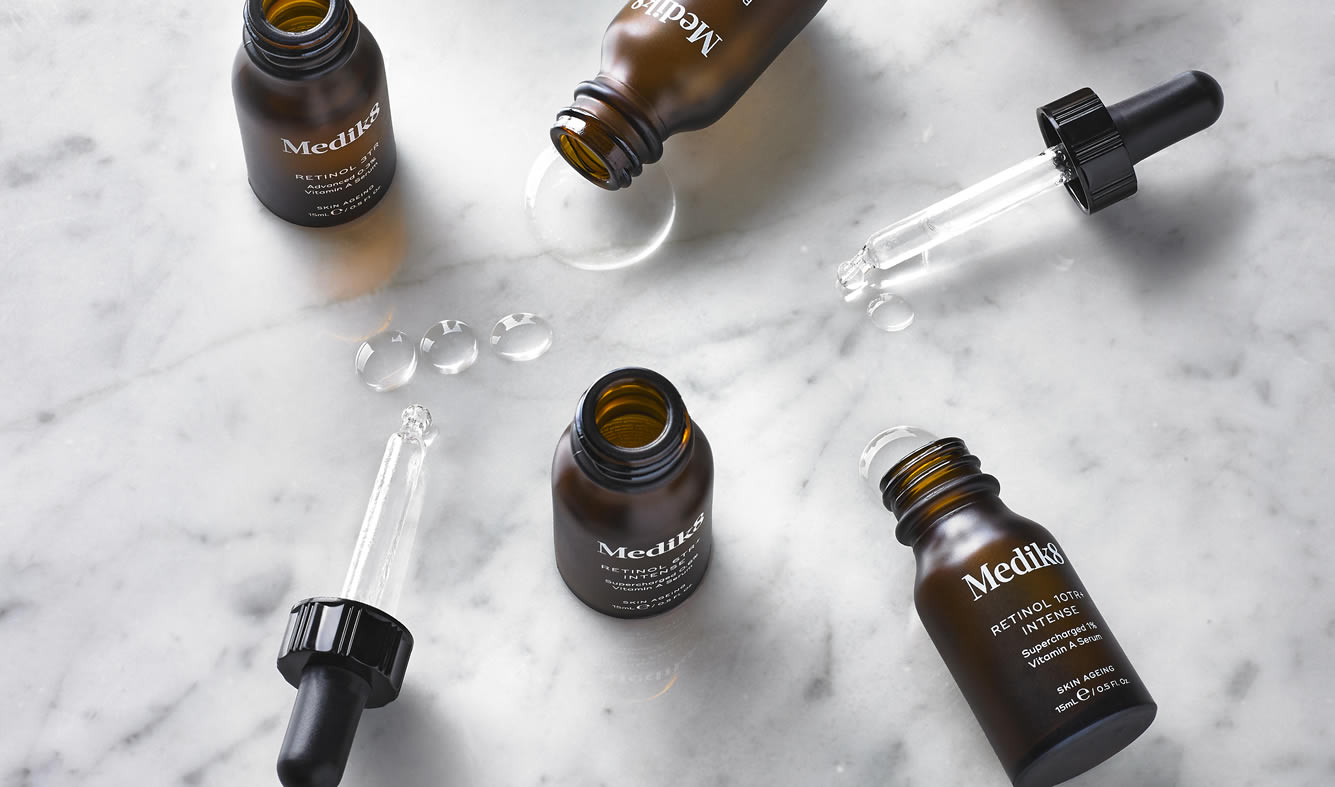
Retinol has long been celebrated as a powerhouse in skincare, renowned for its ability to promote cell turnover, reduce fine lines, and brighten skin. However, despite its impressive results, retinol isn’t for everyone. For many, it can lead to irritation, redness, and increased sensitivity — particularly for those with delicate or reactive skin.
As a result, there’s growing interest in gentler, more natural alternatives that deliver similar benefits without the harsh side effects. From bakuchiol to peptides, these innovative options cater to the needs of sensitive skin while still supporting age-defying and skin-smoothing goals that retinoids can bring.
In this guide, we’ll delve into the most effective retinol alternatives, exploring how they work and why they might be a better fit for your skincare routine. If you’ve been hesitant to try retinol or are seeking a kinder alternative, keep reading to discover your perfect match.
Understanding retinol and its benefits
Retinol, a synthetic derivative of Vitamin A, is a type of retinoid best known for its anti-ageing benefits.
One of retinol's key benefits is its ability to reduce the appearance of fine lines and wrinkles. It also helps to improve skin tone and texture, diminish pigmentation, and promote a radiant complexion. For those with blemish-prone skin, retinoids also help to keep pores clear, reducing the appearance of breakouts.
While retinol is highly effective, it can sometimes cause dryness or sensitivity as your skin adjusts. To minimise this, introduce it gradually into your routine and always pair it with a hydrating moisturiser and daily SPF. With regular use, retinol can unlock visibly healthier, more youthful-looking skin.
Why seek alternatives to retinol?
Not all of us can tolerate traditional retinoids. Those with sensitive skin or conditions like eczema may find retinol too harsh, as it can exacerbate irritation. Additionally, overuse or improper application may lead to further sensitivity or discomfort. For those prone to reactions, gentler alternatives like retinaldehyde, are ideal. These formulations offer similar benefits with reduced irritation, making them suitable for even the most delicate complexions. Always follow with SPF, as retinoids can make skin more prone to sun sensitivity, as with any other active ingredients.
The search for retinol alternatives
For those seeking the transformative benefits of retinoids without the potential drawbacks, retinol alternatives offer an exciting solution. These innovative ingredients deliver targeted results while catering to various skin types, including sensitive complexions.
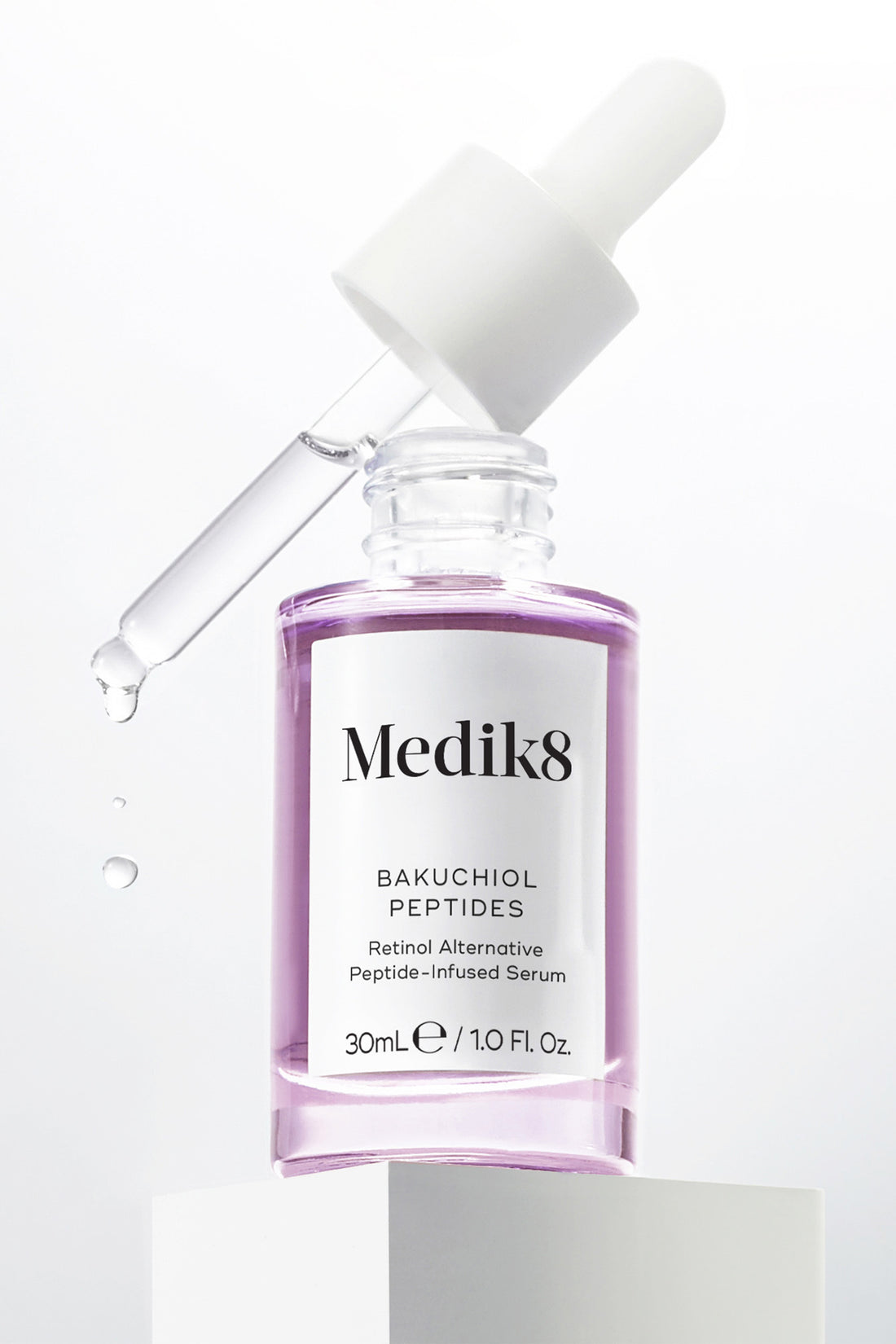
Bakuchiol: The plant-based retinol alternative
Bakuchiol is a natural, plant-derived ingredient native to eastern Asia. Clinically proven to deliver similar anti-ageing benefits as retinoids, bakuchiol helps reduce the appearance of fine lines and wrinkles while improving skin elasticity and firmness. Unlike retinol, it is well-tolerated by sensitive skin, making it a suitable choice for those prone to irritation.
Studies show bakuchiol stimulates collagen production, smoothing skin texture and enhancing radiance. It is particularly effective for addressing early signs of ageing, uneven tone, and loss of firmness without the dryness or sensitivity sometimes associated with retinol. Perfect for those seeking a gentle, vegan-friendly solution, bakuchiol bridges the gap between efficacy and comfort.
Medik8 recommends: Bakuchiol Peptides - The gentle power of Bakuchiol to smooth the appearance of ageing.
Retinaldehyde: A more gentle form of vitamin A
Retinaldehyde, or retinal, offers the perfect balance of efficacy and gentleness, making it an ideal choice for those seeking a more potent alternative to retinol without the associated irritation. As a direct precursor to retinoic acid, retinaldehyde delivers results 11x faster than retinol* while remaining suitable for sensitive skin. This means you have a higher potency retinoid, leading to faster and more efficient results, without compromising your skin's comfort.
Clinical studies highlight its ability to accelerate cell turnover and stimulate collagen production, effectively reducing the appearance of fine lines, wrinkles and hyperpigmentation. Retinaldehyde is also a powerful ally in targeting uneven skin tone, dullness, and loss of firmness. Its tolerability and versatility make it an excellent option for those looking to upgrade their vitamin A routine with minimal downtime.
In conclusion, retinal is better and faster than retinol providing remarkable anti-ageing and radiance-boosting results to the skin.
Medik8 recommends: Crystal Retinal - Our bestselling retinaldehyde formulated with ceramides and hyaluronic acid.
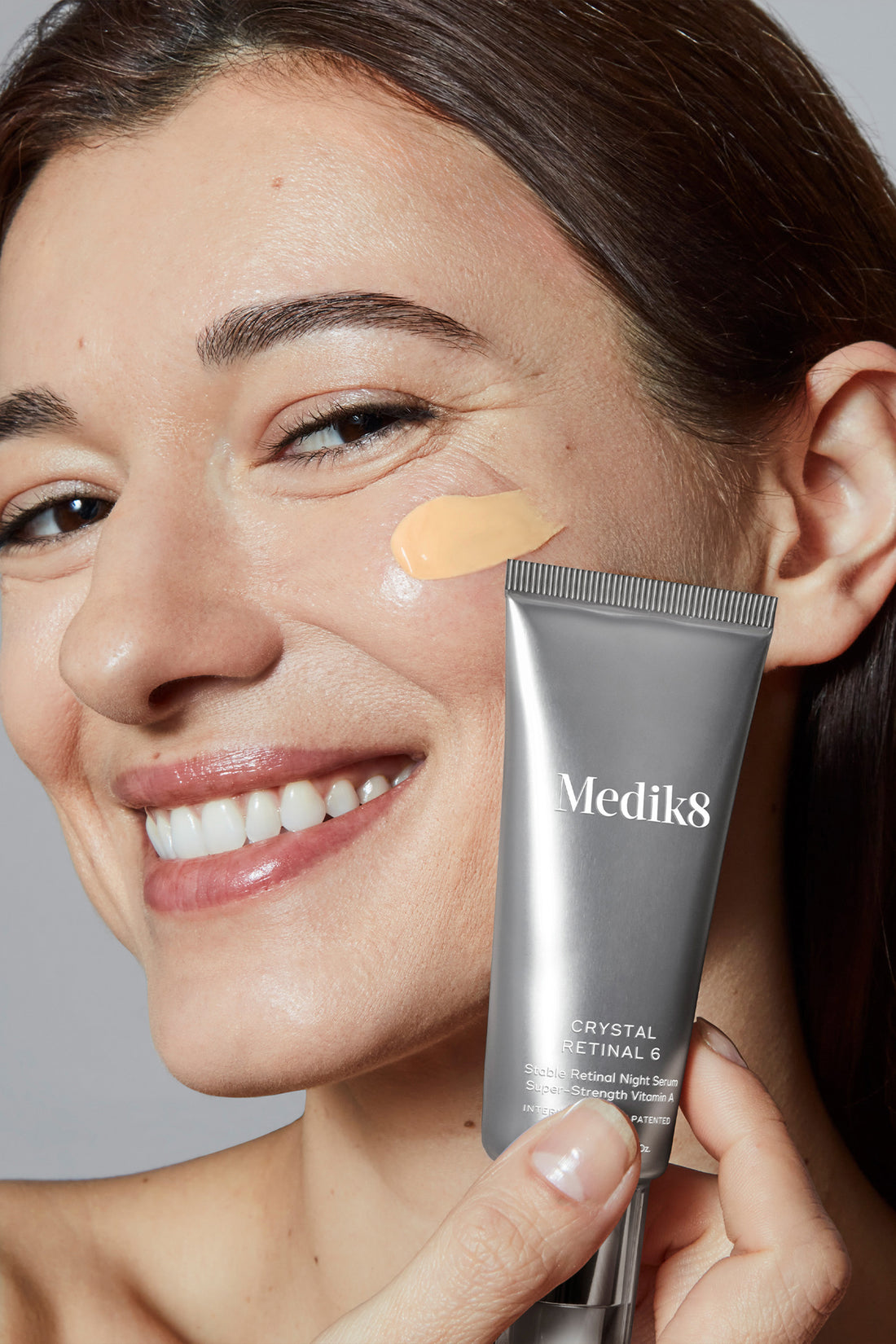
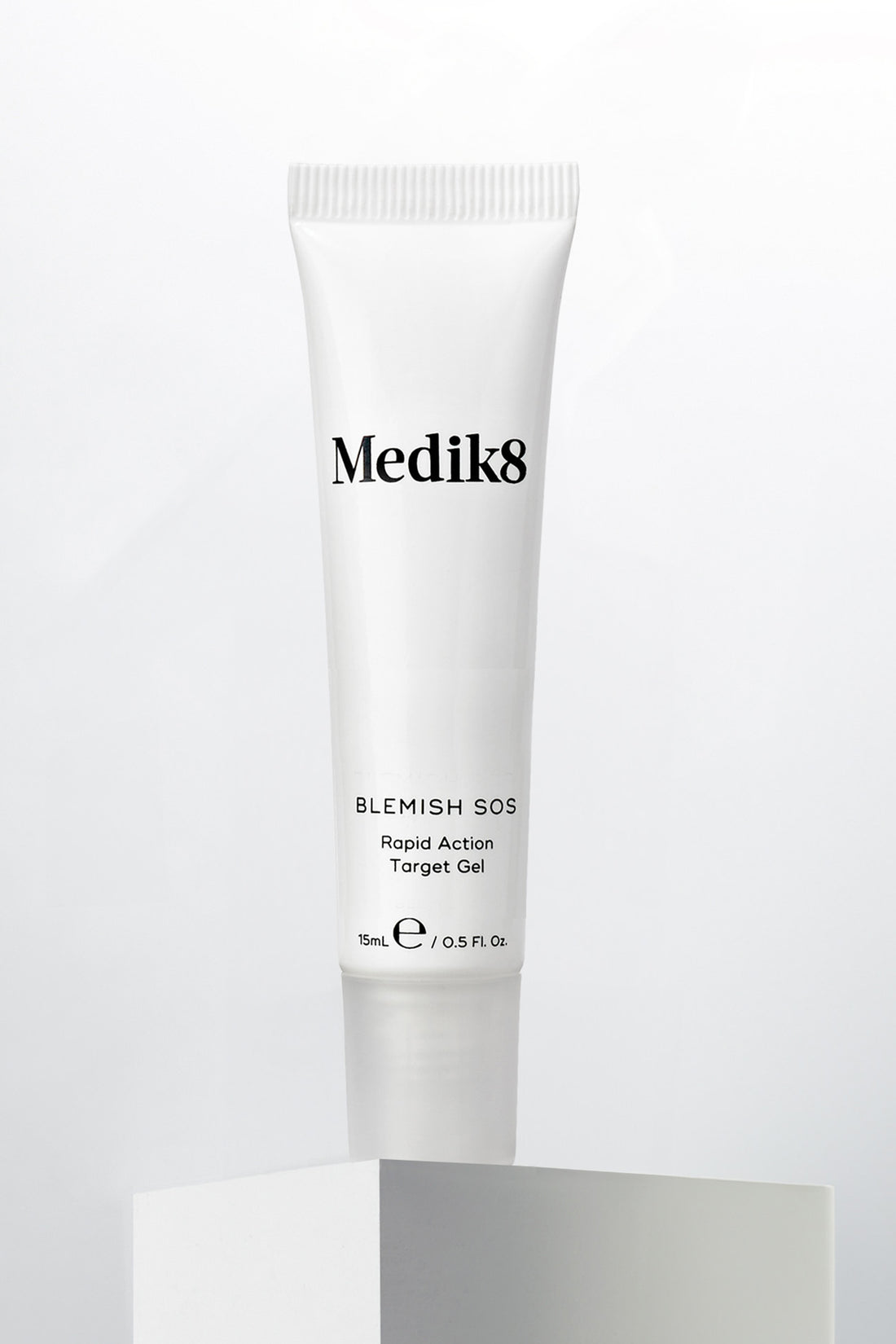
Azelaic acid: More than just an acne treatment
Azelaic acid is a multitasking skincare hero known for its anti-inflammatory, antimicrobial, and brightening properties. While famous for treating acne, it also addresses hyperpigmentation and redness, making it a versatile choice for various skin concerns.
Ideal for those with sensitive or rosacea-prone skin, azelaic acid works to fade dark spots by inhibiting melanin production, evening out skin tone without irritation. It’s a gentle solution for calming inflammation and soothing redness while improving overall texture.
As a complement to retinol, azelaic acid enhances brightening and age-defying effects while reducing sensitivity risks. It’s also an effective alternative for those who find retinol too harsh, offering comparable benefits without the side effects.
Perfect for anyone seeking visible results with a gentle touch, azelaic acid is a game-changer for achieving smooth, radiant, and even-toned skin.
Medik8 recommends: Blemish SOS - Target the look of blemishes and visibly reduce redness
Niacinamide: Multifunctional skincare hero
Niacinamide, a form of vitamin B3, is celebrated for its versatility and wide-ranging skin benefits. This powerhouse antioxidant ingredient offers anti-inflammatory properties, helps strengthen the skin barrier, smoothes fine lines and wrinkles, reduces redness, and brightens dull, uneven skin.
Compared to retinol, niacinamide is gentler, making it ideal for sensitive skin types. While retinol promotes cell turnover and collagen production, niacinamide focuses on calming inflammation and boosting hydration.
Together, they complement each other, but niacinamide shines as a standalone solution too for those who can’t tolerate retinol.
Best suited for concerns like redness, dehydration, hyperpigmentation, and dullness, niacinamide is a perfect choice for restoring skin health without irritation.
Whether you’re looking to brighten, smooth, or protect your skin, this multitasking ingredient delivers visible results while being gentle on even the most reactive complexions.
Medik8 recommends: Clarity Peptides - Clarify, decongest, brighten skin, and improve overall skin tone
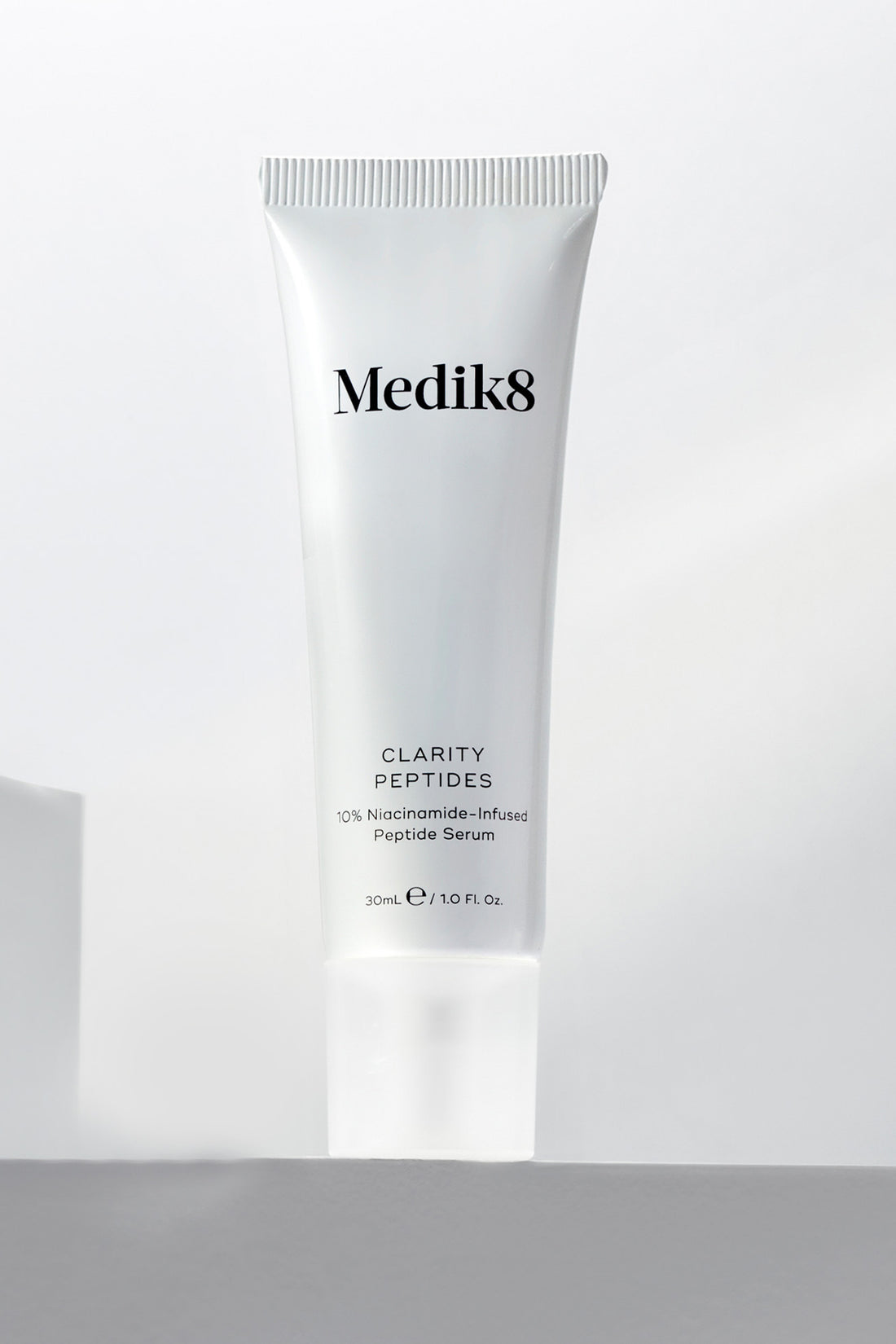
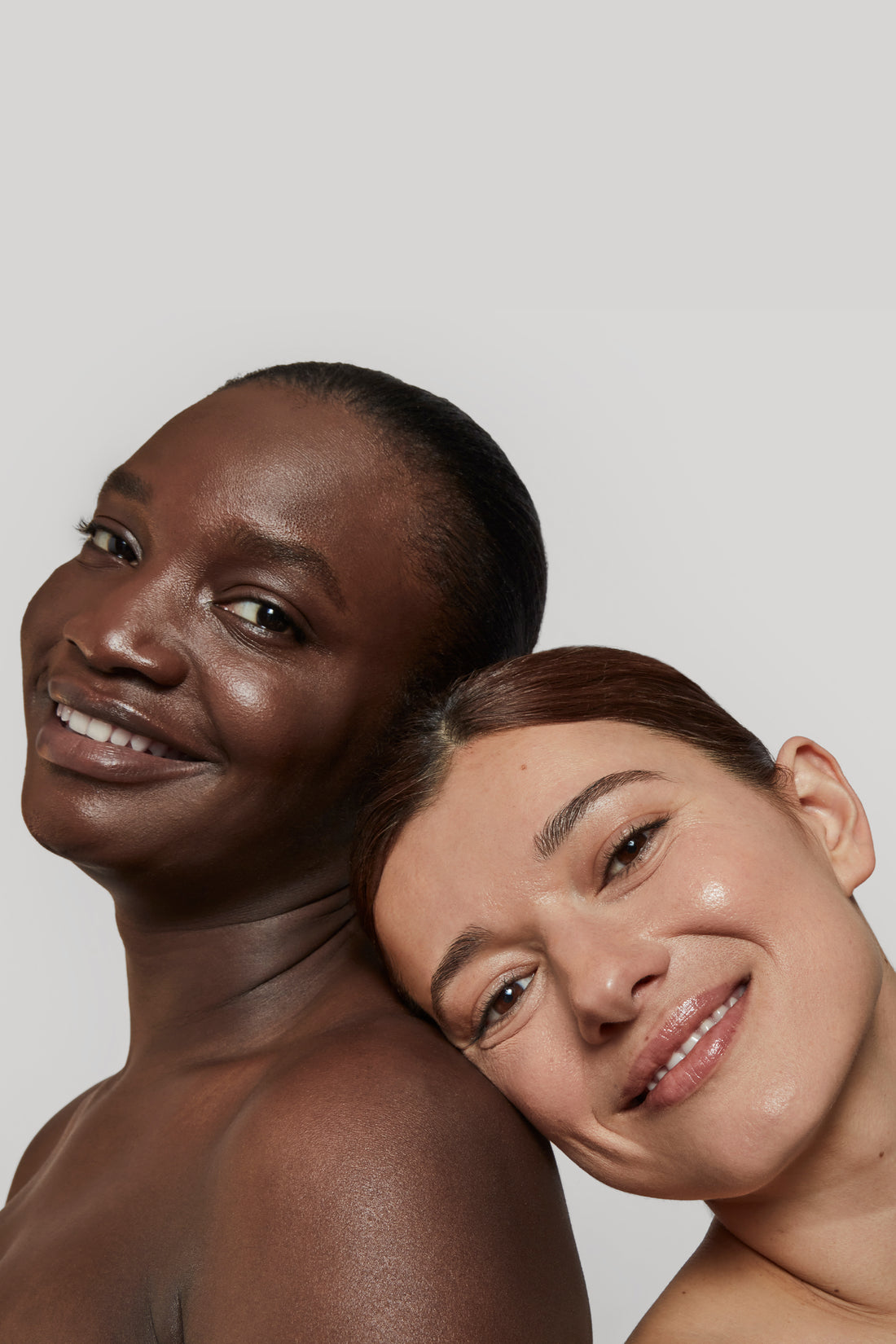
Rosehip oil: Nature’s answer to retinol
Rosehip oil, derived from the seeds of wild rose bushes, is a nutrient-rich natural alternative to retinol. Packed with vitamins A, C, and E, it’s celebrated for its ability to regenerate skin cells, improve tone, and visibly reduce scars and fine lines.
With natural vitamin A, rosehip oil gently promotes skin renewal and targets hyperpigmentation without the irritation often associated with retinol. Its anti-inflammatory properties help calm redness and soothe sensitive skin while delivering deep hydration.
Rosehip oil is an excellent choice for those seeking a plant-based solution to address uneven tone, dryness, and signs of ageing. Ideal for sensitive or retinol-intolerant skin, it provides a nourishing boost to improve overall skin health, leaving your complexion visibly smoother, brighter, and rejuvenated.
Peptides: The versatile youth-renewing powerhouse
Peptides are short chains of amino acids that serve as essential building blocks for proteins like collagen and elastin, vital for maintaining youthful, resilient skin. Known for their ability to boost collagen production, peptides help improve skin texture, reduce the appearance of fine lines, and promote firmness.
Unlike retinol, peptides are incredibly gentle on the skin, making them suitable for those with sensitive or reactive complexions. They work to support the skin’s barrier, hydrate deeply, and provide anti-ageing benefits without the risk of irritation.
Peptides are ideal for targeting concerns like loss of elasticity and dullness while improving overall skin health. Perfect retinol substitute, they offer a powerful yet soothing approach to rejuvenation, leaving skin visibly plumped, smooth, and youthful-looking.
Medik8 recommends: Liquid Peptides - Boost collagen production and hydrate the skin without irritation.
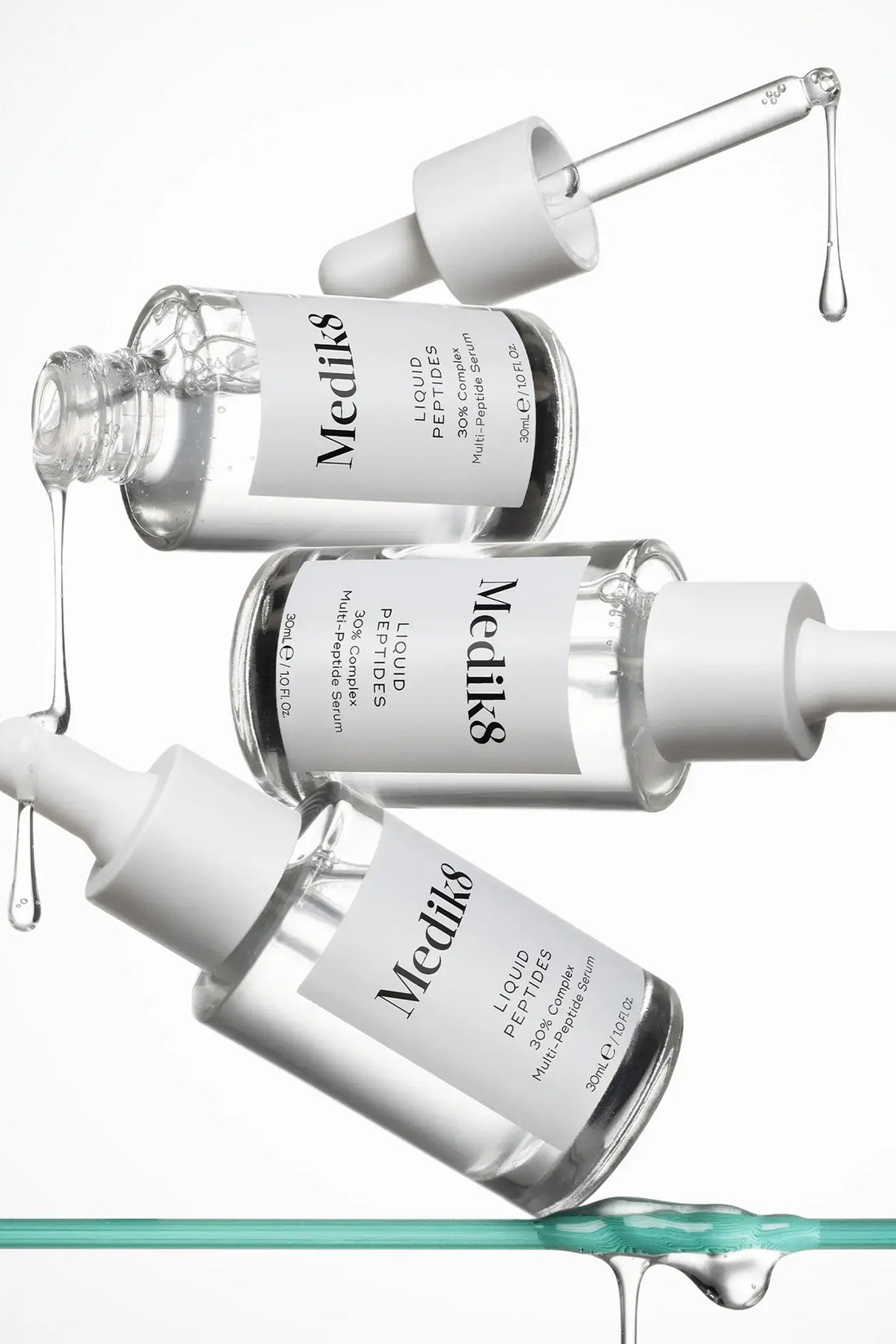
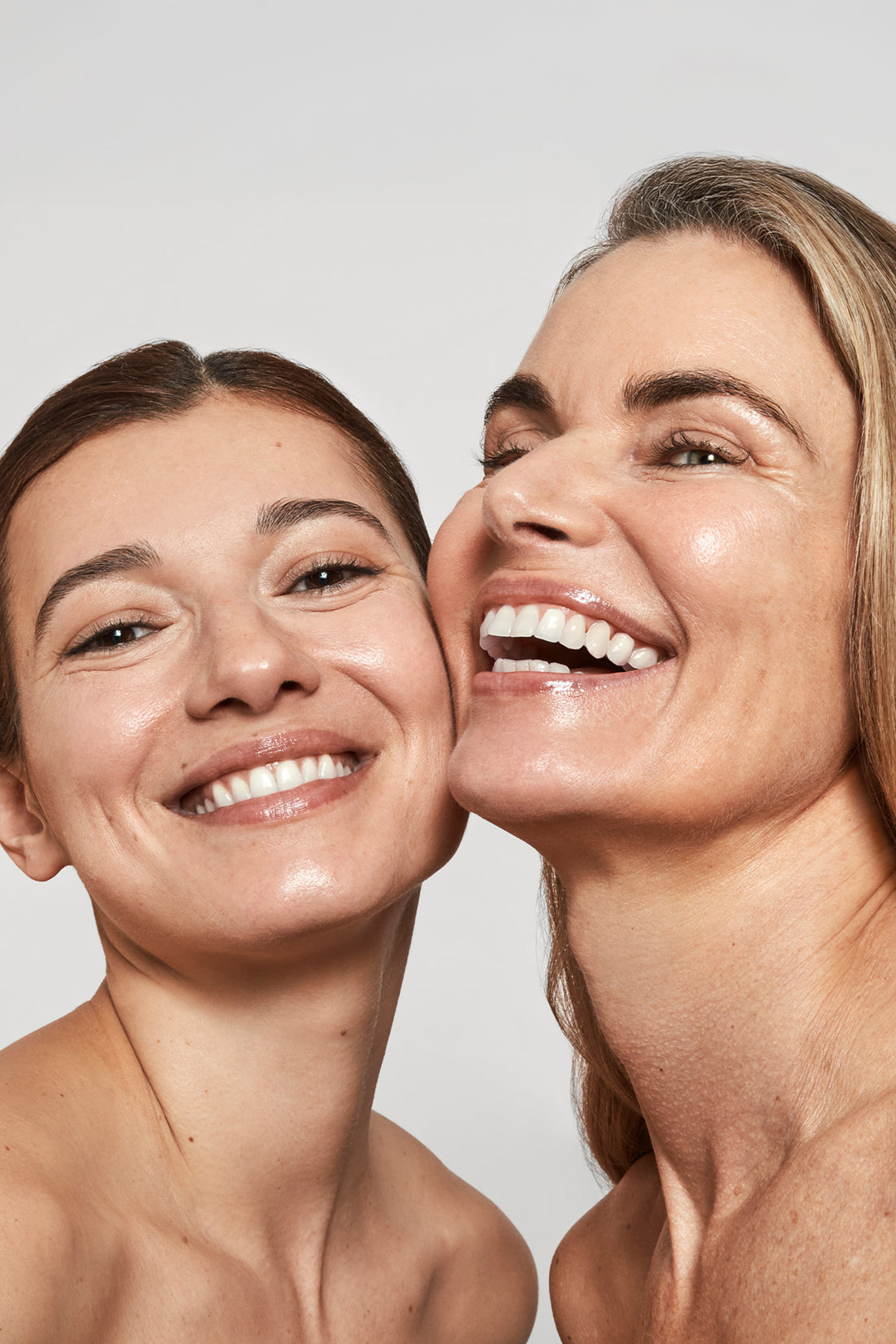
Vitamin C and hyaluronic acid: Dynamic duo for radiant skin
Vitamin C and hyaluronic acid are skin-revolutionising ingredients, each offering unique benefits comparable to retinol.
Vitamin C is a potent antioxidant that protects skin from free radicals, brightens dull complexions, and reduces the appearance of dark spots. It stimulates collagen production, promoting firmer, smoother skin over time.
Hyaluronic acid is a hydration hero, drawing moisture into the skin to plump and soften while enhancing the skin’s barrier function.
Together, this dynamic duo delivers a synergistic effect: vitamin C brightens and protects, while hyaluronic acid deeply hydrates and supports elasticity. This combination is ideal for targeting dullness, dehydration, and early signs of ageing.
For those seeking gentler retinol alternatives, this pairing provides powerful antioxidant protection, visible skin brightening, and long-lasting hydration for a radiant, youthful-looking complexion.
Medik8 recommends: C-Tetra® Luxe and Hydr8 B5 Intense - Plump the skin and enhance its barrier with hyaluronic acid while vitamin C provides antioxidant protection.
How to choose the right alternative for your skin
Selecting retinol alternatives that suit your skin type and concerns is key to achieving the best results. Start by understanding your skin’s needs:
Patch testing is essential, especially for sensitive skin types. Apply a small amount of the product to your inner arm or behind the ear, and wait 24 hours to check for any reaction.
Introduce new products gradually and pay attention to your skin’s response. Start using them once or twice a week, increasing frequency as your skin adjusts.
Always follow with sunscreen during the day, as some ingredients can increase sun sensitivity. By carefully considering your skin’s unique needs, you can find a retinol alternative that delivers effective results without compromise.
Embracing retinol alternatives
Retinol may be the gold standard for many, but it’s not the only path to healthy, radiant skin. From peptides that enhance collagen production to azelaic acid’s calming, clarifying properties, alternatives to retinoids offer tailored solutions for a variety of skin concerns. Ingredients like niacinamide, rosehip oil, and the powerful duo of vitamin C and hyaluronic acid demonstrate that effective skincare doesn’t have to compromise comfort or safety.
Choosing the right alternative depends on your unique skin type and needs. Whether you’re targeting signs of ageing, brightening dull skin, or addressing sensitivity, there’s an option that can work harmoniously with your skin.
Skincare is personal, and finding what works best for you is a journey worth embracing. With these alternatives, you can achieve your skin goals while prioritising its health and balance.
FAQs
There are several effective retinol alternatives, including retinaldehyde, peptides, niacinamide, azelaic acid, rosehip oil, bakuchiol, and the combination of vitamin C and hyaluronic acid. Each offers unique benefits to address skin concerns such as ageing, pigmentation, or sensitivity.
Rosehip oil contains natural forms of vitamin A along with vitamins C and E, which help improve skin tone, texture, and hydration. While it’s not as potent as retinol, it’s a gentler alternative that can still deliver visible results for scars, fine lines, and dullness.
Bakuchiol is often compared to retinol because it offers similar benefits, such as reducing fine lines, improving skin texture, and targeting pigmentation, but without irritation. It’s an excellent choice for sensitive skin, those seeking plant-based options, and an alternative to retinol during pregnancy or those who are breastfeeding.
Vitamin C is not a direct alternative to retinol, but it can be a good substitute for individuals who cannot tolerate vitamin A, particularly for brightening skin, reducing pigmentation, and protecting against free radical damage. Pairing with other actives, like bakuchiol or niacinamide, it can further enhance its effectiveness.
Many retinol alternatives, like niacinamide, peptides, and rosehip oil, are formulated to be gentle and are suitable for sensitive skin. Patch testing and gradual introduction are key to ensuring safety and comfort.
Bakuchiol and rosehip oil are two popular natural alternatives to retinol. Both are derived from plants and offer benefits like skin regeneration, improved elasticity, and reduced fine lines without causing irritation.
Start by patch-testing the product to ensure compatibility with your skin. Use retinol alternatives in your routine just as you would retinol, depending on the product it is formulated in. For example, in a serum form, apply after cleansing and before moisturising, and always follow with sunscreen during the day to protect your skin.









